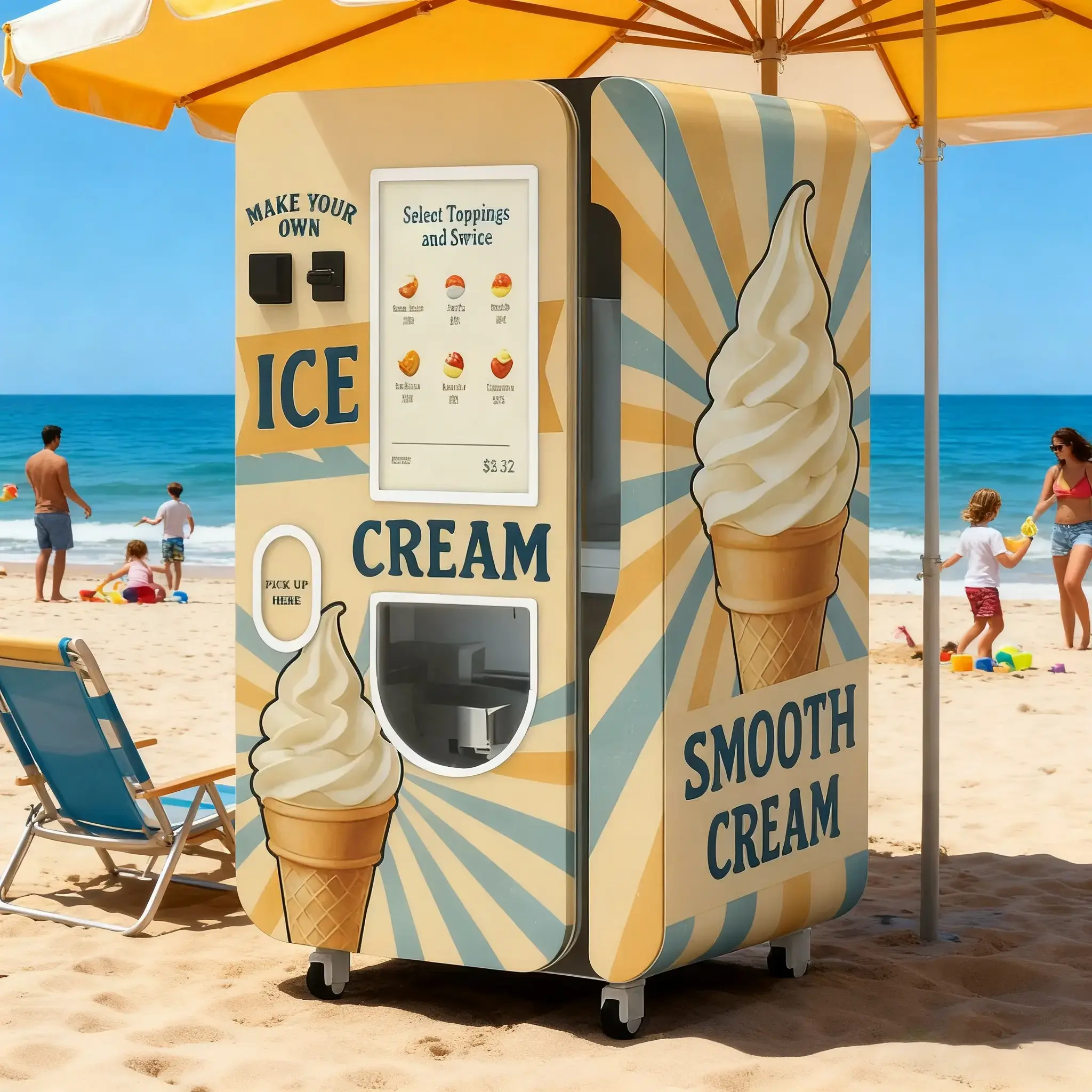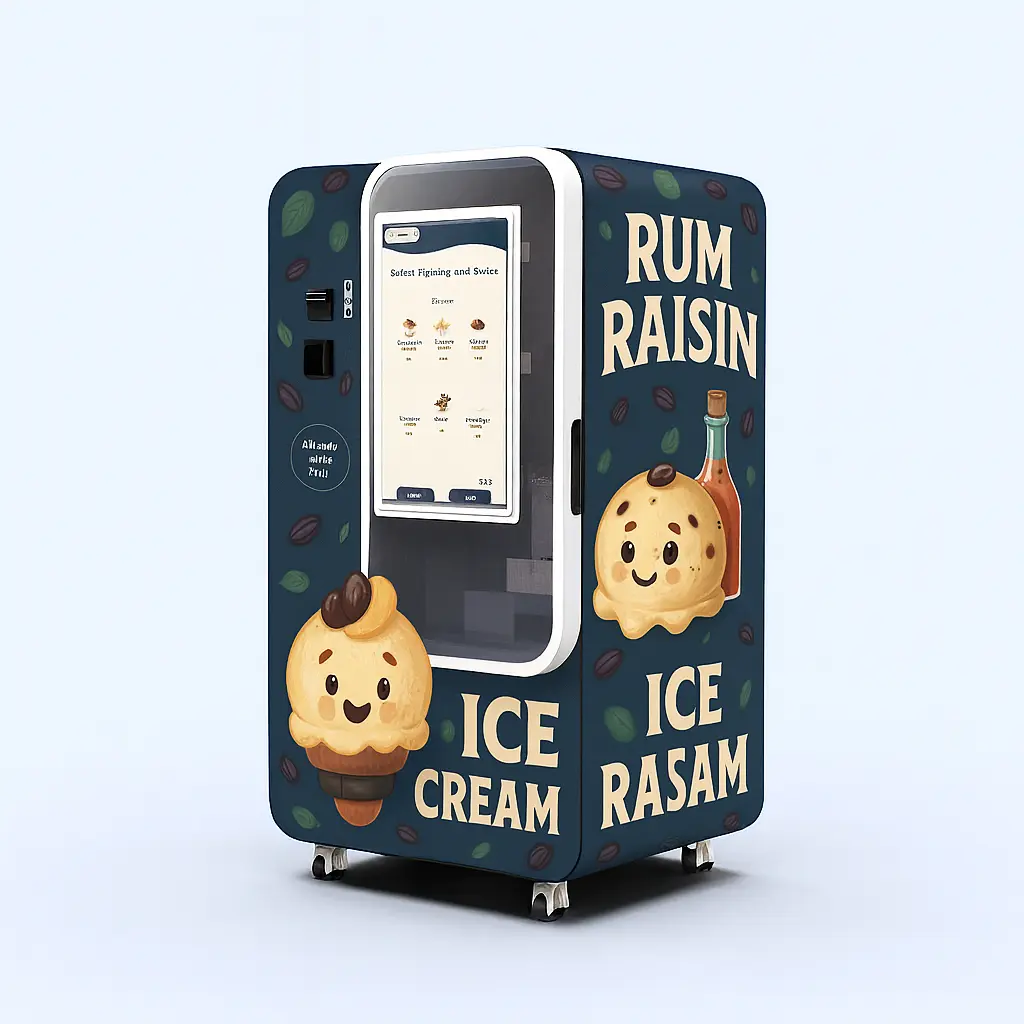Do I need an LLC for a ice cream vending machine?
Date:2025-08-27 Author:Huaxin
Whether to form an LLC depends on your business scale and risk exposure. Small-scale testing (1-2 ice cream machines) may opt for sole proprietorship to reduce costs. If planning expansion, partnerships, or needing protection against food safety risks, an LLC effectively shields personal assets from liabilities. Choose based on actual needs.

Starting a vending machine business—whether you’re stocking snacks, drinks, or specialized options like ice cream—often leads to a critical legal question: Do you need a LLC to operate? Legally, an LLC is not mandatory to launch a ice cream vending business. But the decision to form one hinges on your risk tolerance, business scale, and long-term goals.
What an LLC Does for Your Vending Business
An LLC is a business structure that legally separates your personal assets (such as your home, car, or savings) from your business’s liabilities—a distinction that matters for all vending types, including ice cream.What it does: For ice cream vending specifically, liability risks are more pronounced than with non-perishable snacks. If a customer gets food poisoning from spoiled ice cream or slips on melted ice cream leaking from your machine, an LLC shields your personal assets from lawsuits or creditor claims. This protection is its biggest advantage: without an LLC, you could be held personally responsible for medical bills or legal fees stemming from such incidents.
What it doesn’t do: An LLC won’t eliminate ice cream-specific risks. You still need business insurance to cover issues like a faulty ice cream machine’s cooling system. It also doesn’t replace permits required for selling food or simplify tasks like tracking ingredient expiration dates. Additionally, LLCs involve ongoing costs, which add to your expenses, especially if you’re just starting with a single ice cream machine.
When an LLC Makes Sense for a Vending Business
Multiple machines or high-risk ice cream locations: If you own 5+ vending machines, or place ice cream machines in high-foot-traffic areas, an LLC becomes more critical. Ice cream machines have unique failure points: a broken compressor could spoil inventory or leak melted product (causing slip hazards). More machines mean more opportunities for these issues, making liability protection essential.Partnerships or scaling ice cream offerings: If you’re starting the business with a partner (e.g., splitting costs for ice cream machine purchases and ingredient supplies), an LLC clarifies ownership shares, profit splits, and decision-making—preventing disputes over things like which locations to target or how to maintain machines. It also eases scaling: if you plan to add premium ice cream flavors, expand to seasonal locations (like beaches), or hire staff to restock machines, an LLC structure is more appealing to investors or potential buyers than a sole proprietorship.
When You Might Skip the LLC (For Now)
For some vending operators—especially small-scale ice cream vendors—forming an LLC early on may be unnecessary. You can start without one if:You’re testing the market with 1–2 ice cream machines: If you’re launching small to gauge demand, a sole proprietorship (the default structure if you don’t form an LLC) is simpler. The risk of liability is lower with fewer machines. You’ll also avoid LLC fees and paperwork while you validate your business.
You have minimal personal assets: If you don’t own a home, car, or large savings, there’s less to protect from business liabilities. For a new ice cream vendor with few personal assets, the cost and effort of an LLC may outweigh the benefits—especially when you’re already budgeting for machine maintenance, ice cream mix, and permits.
You prioritize low upfront costs: Sole proprietorships have no formation fees, and taxes are simpler. This is ideal if you want to keep startup costs low—critical for ice cream vending, where machines and refrigerated storage can already be expensive.
An LLC is not a universal solution for vending machine businesses—especially when it comes to specialized niches like ice cream. If you’re a small-scale operator testing the ice cream vending market with 1–2 machines, a sole proprietorship may be sufficient to start. But if you plan to grow, partner with others, or protect your personal assets from ice cream-specific risks (like food safety lawsuits or equipment-related accidents), forming an LLC is a wise long-term step.
Before deciding, research your state’s LLC requirements (e.g., formation fees, annual reports) and consult a small business attorney or tax professional. They can help you align your structure with your goals—whether that’s launching a single ice cream machine or building a nationwide fleet—ensuring you’re protected while keeping costs in check as your business grows.




